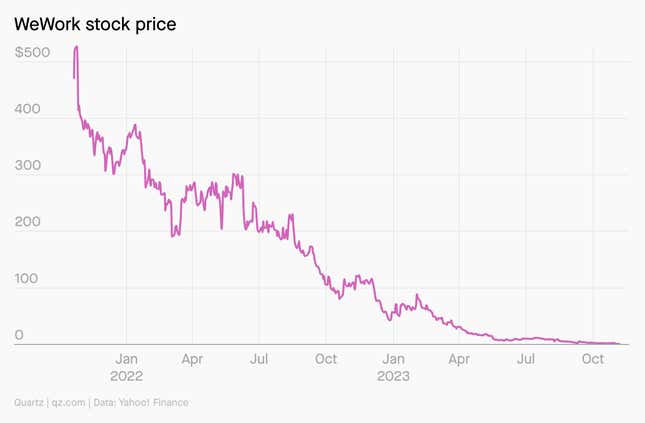
Good morning, Quartz readers!
Here’s what you need to know
Baidu is taking its business from Nvidia to Huawei. A Reuters report uncovered an August order from the Chinese internet giant for 1,600 AI chips. Nvidia’s chips may be more powerful, but Chinese companies are losing faith in continued access to US chip makers.
Xi Jinping will meet with US business execs in San Francisco next week. CEOs from major US companies will attend, though we don’t yet know who, as the Chinese president hopes to instill confidence in foreign investors.
OpenAI will let users build their own AI chatbots. At the company’s first developer conference yesterday, CEO Sam Altman demonstrated how OpenAI is beginning to build a whole product ecosystem.
EV maker Rivian dropped its deal with Amazon. The manufacturer ended an agreement granting Amazon exclusive access to its electric vans—and said this year’s production is looking bright (and battery-powered).
The US prohibits sales of high-res satellite images over just one state

The above picture shows Gaza City, as seen in 3-meter-per-pixel imagery from Planet Labs.
In modern conflict, we tend to rely on satellite sensors to understand a lot of what’s happening. But in the war between Israel and Hamas, there’s a 1997 law that’s getting in the way.
Tim Fernholz explains why in the 1990s the US enacted rules to keep rivals from getting a leg up by purchasing reconnaissance photos from American satellite companies, and how Israel became the only country with standard restrictions under subsequent laws.
WeWork finally got where it was going

Marking a sort of rock bottom in its years-long fall from grace, WeWork finally filed for bankruptcy yesterday. If you’ve been following the saga of the office space rental company, its ousted founder Adam Neumann, the disastrous IPO, the failed side projects… you’d be forgiven if you had an initial twinge of surprise that WeWork was just now entering its 11th Chapter.
But remember, it was a mere four years ago when WeWork was still SoftBank’s darling and worth $47 billion, and even now, spaces remain open. Ananya Bhattacharya will take you on a trip down the office-lined hallways of memory.
Can we take Elon Musk’s new chatbot seriously?
Well, like the chatbot Grok plans to do, let us suggest another question for you to ask: Do you hate humor?
If so, consider not using Grok! At least that’s what Elon Musk’s newly created company xAI quipped in the blog post announcing its new tool, a large language model (LLM) that aims to contend with the big movers in the field: OpenAI’s ChatGPT, Google’s Bard, and Anthropic’s Claude. xAI says its capabilities are already about the same as its competitors after just four months of development and two months of data training.
Quartz’s Greta Suarez talked to some skeptical experts who warned, among other concerns, of hallucination rates sacrificed on the altar of humor.
Quartz’s most popular
🫒 Why global olive oil prices are at their highest ever
⚔️ Taylor Swift and BTS superfans are rallying against Argentina’s far right
👟 Nike has now sued five footwear companies for stealing a sneaker technology
🧐 Why are billionaires so convinced the US economy will break?
🟢 AI is now writing “green” recipes for recycled steel
🪡 The trick to sticking to a project every day—for years
Surprising discoveries
Siri was pronouncing Barbra Streisand’s name wrong. The singer called up Apple CEO Tim Cook and got the “Z” sound taken out.
Hearing voices is a lot more common than you might think. Sometimes it just has to do with the brain receiving sets of signals that contradict each other.
But in space, no one can hear this tool bag scream. Spacewalking astronauts lost their grip on a tote, and now it shall orbit, taunting them, forevermore (or until something happens to it).
Scottish wildcats are pretty much just regular cats. A rabbit-killing virus decimated their population and forced them to start breeding with domestic felines in the 1950s, but some researchers think there’s hope for the species still.
Elephantnose fish “see” using electrolocation. It’s like echolocation, only it involves making an electric field and doing a little dance.
Did you know we have two premium weekend emails, too? One gives you analysis on the week’s news, and one provides the best reads from Quartz and elsewhere to get your week started right. You can get those by becoming a member—and take 20% off!
Our best wishes for a productive day. Send any news, comments, electric slides, and space bag sightings to [email protected]. Today’s Daily Brief was brought to you by Susan Howson.